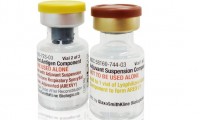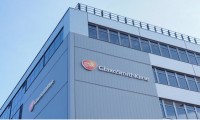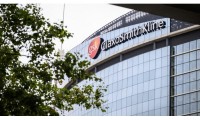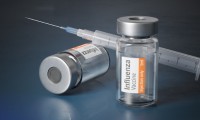-
GSK survey results highlight meningitis knowledge gaps among parents
- Source: drugdu
- 178
- October 17, 2023
-
FDA Approves GSK’s Momelotinib for Myelofibrosis Patients with Anemia
- Source: drugdu
- 222
- September 20, 2023
-
FDA Approves GSK Myelofibrosis Med That Has Edge Over Others in Drug Class
- Source: drugdu
- 179
- September 19, 2023
-
GSK invests over $270m in vaccine manufacturing ahead of RSV vaccine launch
- Source: drugdu
- 201
- September 8, 2023
-
GSK stays a step ahead in RSV vaccine battle as Arexvy becomes available at US pharmacies
- Source: drugdu
- 171
- August 19, 2023
-
GSK files lawsuit against Pfizer over RSV vaccine patent infringement
- Source: drugdu
- 115
- August 7, 2023
-
GSK’s Jemperli Beats Merck’s Keytruda for Frontline Endometrial Cancer Approval
- Source: drugdu
- 123
- August 3, 2023
-
GSK beats Merck to first PD-1 approval in newly diagnosed endometrial cancer
- Source: drugdu
- 107
- August 2, 2023
-
GSK Tamps Down Short-Term Expectations for RSV Shot Arexvy, but Still Boosts 2023 Guidance
- Source: drugdu
- 115
- July 28, 2023
-
Vir’s GSK-Backed Flu Vaccine Candidate Fails Phase II Trial
- Source: drugdu
- 151
- July 25, 2023
your submission has already been received.
OK
Subscribe
Please enter a valid Email address!
Submit
The most relevant industry news & insight will be sent to you every two weeks.













